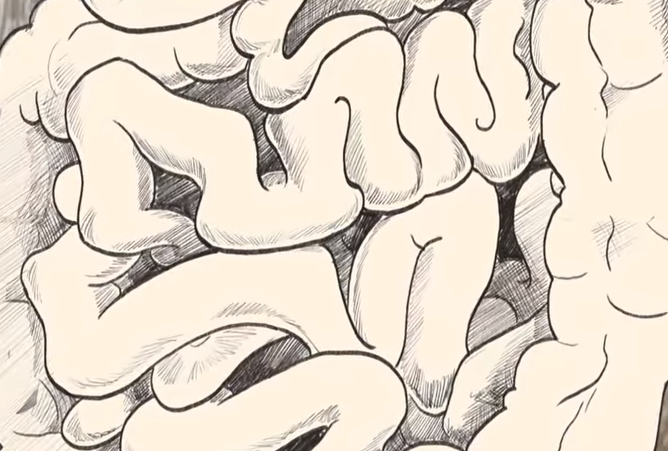At the same time, methanogens can use hydrogen and carbon dioxide produced by other bacteria to generate methane,
同时,产甲烷菌可以使用其他细菌产出的氢和二氧化碳以生成甲烷,
which can reduce the total volume of gas by using up hydrogen and carbon dioxide.
通过耗掉氢气和二氧化碳来减少气体的总量。
So there's a complex web among intestinal bacteria
因此,肠道细菌形成了一个复杂的网络,
allowing them to flourish by either directly consuming undigested food, or using what other bacteria produce.
它们可以直接消耗未消化的食物或者消耗其他细菌生产出来的东西。
This interaction largely determines the amount and type of gas produced,
这种相互作用在很大程度上决定了气体所产生的量和类型,
so gas production is a sign that your gut bacteria are at work.
因此,产气表明你的肠道细菌在起作用。
But in some instances, people may develop abnormal increased flatulence.
但是在某些情况下,人们可能会产生异常的胃肠胀气。

A common example is lactose intolerance.
一个常见的例子是乳糖不耐症。
Most individuals have the enzyme for breaking down lactose, a sugar present in milk and milk-derived products.
大多数人都有分解乳糖的酶,乳糖是一种在牛奶或奶制品里存在的糖。
But some people either lack it entirely, or have a reduced amount, such as after a gastrointestinal infection,
但是有些人可能就没有这种酶,或者有但是数量不够,如胃肠感染后,
so they're unable to digest lactose products and may experience cramping, along with increased flatulence due to bacterial fermentation.
所以他们无法消化乳糖的产品并可能腹部绞痛,同时伴随着由于细菌发酵而导致的胀气。
But remember, most gas is produced as a natural result of bacterial fermentation in the intestine,
但是记住,大部分气体都是由肠胃里的细菌自然发酵的,
and indicates healthy functioning of the gut.
这表明肠胃正常工作。
The amount and type can vary based on your diet and the bacteria in your intestine.
气体的数量和类型会因为你的饮食和肠道内的细菌种类而有所不同。
Exercise social courtesy while passing gas, and do try to forgive your bacteria.
放屁时也要娴习礼仪并试着原谅你的细菌。
They're only trying to be helpful.
他们也只是想帮帮忙。


